Travel reviews by Mr J from Essex
Review Distribution
Total number of trips
1
Countries visited
2
Lodges stayed in
4
Excursions taken
0
My Nov 2007 trip
Tanzania and 1 other country between 24 Nov 2007 and 21 Dec 2007
"In general, it was a most enjoyable holiday and the arrangements make by Expert Africa worked perfectly in all important respects.
Based on my experience, I have made comments which I hope will be accepted as constructive and assist you to improve still further your level of service.
I experienced some difficulties in getting to Heathrow for a Saturday departure. Both mainline rail and the tube often have engineering work at weekends. I spoke to some other people who also had problems. Where there is an option of a mid-week departure, I would suggest you might point out to would-be travellers that a mid-week departure would avoid snarl-ups with rail and tube.
Visa. May I say that I object to the entry “visa”, which is not really a visa, but an arrivals tax. (The fact that you can buy it on arrival at Dar indicates this is not a true visa). Most countries have a departure tax, but on arrival I would prefer to receive a warm welcome, not a poke in the eye. In terms of the overall cost of the trip, this is not a significant amount, but I do not like having to pay a tax both on arrival and on departure. I appreciate this is not under your control, but I mention this in case you ever speak to the appropriate authorities.
A general comment: All the tents/rooms were spotlessly clean.
Laundry. At Mdonya the embargo on hand washing women's underclothes also extends to men's underclothes and handkerchiefs. (Strangely, this did not seem to be an issue at Manze and Impala. Change of religious taboos??). The cost of laundry is included at Impala.
p.6 Airport departure tax. The only place in Tanzania where I had to pay a departure tax was on departure from ZNZ to DAR. USD6.00, not 5. Claire's email said, "You no longer need to pay the international departure tax out of Tanzania as this is now included on your air ticket. You will still need to pay the domestic departure tax out of Dar and Zanzibar but not out of Selous or Ruaha. We have recently amended our Notes for Travellers accordingly." I took this to mean I would be charged the tax flying Dar-Ruaha, and Dar-Znz, but this was not the case.
You state that it is essential that we reconfirm our return flight. When I eventually managed to find a computer and logged on to BA.com, I found a message saying that reconfirmation was necessary only for flights from Libya and Saudia Arabia.
Postcards are unobtainable at Mdonya and Manze. They can be bought at the shop in the domestic terminal at DAR airport - if you are awake enough to buy some whilst awaiting the connecting flight to Ruaha.
The safari vehicles in Tanzania all have an overhead awning to keep off the sun and/or rain. This is an excellent idea and one that their competitors further south (e.g. Zambia, Namibia) would do well to copy.
Both Ruaha and Selous are happily free from the accumulation of plastic bags, Coke tins and other rubbish which I found spoiling the Zambezi at Chobe last year.
My experience did not bear out your advice concerning payment of ranger fees. On no occasion was I asked to pay any fee for the services of a ranger, although it is of course customary to give them a tip.
Mobile phones: the Tanzanians are as addicted to mobile phones as we are. This was not a problem at Impala, but at Mdonya and Manze drivers and guides made and received calls when out game-viewing. When drifting peacefully across Lake Manze in a small boat with the engine stopped, or being stationary watching 40 elephants moving silently across the road in front of you, these are not ideal times to have a mobile start ringing. I look forward to the time when some of the bird mimics, such as robin chats, master the ring of a mobile and then this sound will be heard all over the park! Perhaps drivers and guides should be discouraged from taking or using their phones outside the confines of the camp – unless there is an emergency. I already mentioned this at Manze, so corrective action may have been taken already.
Compared with my experience in South Luangwa, the Tanzanian guides are less knowledgeable and they are less able to express their knowledge in clear English. Many of them do not distinguish between the letters “l” and “r”. Rilac bleasted lollers are common birds! (aka Lilac breasted roller)
At some stage in the planning process it was suggested that I split the stay in the Selous and do Manze, Mdonya, Impala. More by luck than good planning, I think I did my trip in the right order. The standard of the camps rose as I progressed, culminating in extreme pampering at Impala. I think I would have been disappointed if I had ended up at the comparatively Spartan Mdonya after I had enjoyed the luxury of Imapala. A small example, the tin wash basin to be emptied by hand at Mdonya was plumbed in at Manze, and replaced by two porcelain sinks at Impala. (This is not meant to belittle Mdonya. It is a charming place which I really liked, but if you expect every camp to be like Impala, then you may get an unpleasant surprise.)
Although I appreciated the comfort of having the wad of vouchers which you sent me, in the event I was never asked to produce even one. The pilots of Coastal Aviation did not even ask for my air ticket when flying out of Ruaha and Selous!
Fly Camping. You say in your brochure that you are not sure where this term originated. If you read the Life of Selous by J.G.Millais (1918) he makes references such as,
“horses could be no longer used and the elephants themselves must be pursued on foot in the 'fly.'”
“…mostly killed by hunting them from horseback, but even as an old man he killed many on foot in the 'fly' country.”
“Their main hunting veldt was the 'fly' country between the rivers Zambezi and Gwai.”
This suggests to me that the term fly camping means to camp in areas where there are tsetse fly. I realise this derivation is hardly likely to encourage tourists!
I found the Tanzanians universally friendly and welcoming, although the Zanzibaris I met at Unguja were not quite to cheerful as their colleagues on the mainland.
Thank you to everyone at Expert Africa and all the camps and hotels. After the hiccough last year over car hire in Namibia, this has restored my faith in Expert Africa."
Based on my experience, I have made comments which I hope will be accepted as constructive and assist you to improve still further your level of service.
I experienced some difficulties in getting to Heathrow for a Saturday departure. Both mainline rail and the tube often have engineering work at weekends. I spoke to some other people who also had problems. Where there is an option of a mid-week departure, I would suggest you might point out to would-be travellers that a mid-week departure would avoid snarl-ups with rail and tube.
Visa. May I say that I object to the entry “visa”, which is not really a visa, but an arrivals tax. (The fact that you can buy it on arrival at Dar indicates this is not a true visa). Most countries have a departure tax, but on arrival I would prefer to receive a warm welcome, not a poke in the eye. In terms of the overall cost of the trip, this is not a significant amount, but I do not like having to pay a tax both on arrival and on departure. I appreciate this is not under your control, but I mention this in case you ever speak to the appropriate authorities.
A general comment: All the tents/rooms were spotlessly clean.
Laundry. At Mdonya the embargo on hand washing women's underclothes also extends to men's underclothes and handkerchiefs. (Strangely, this did not seem to be an issue at Manze and Impala. Change of religious taboos??). The cost of laundry is included at Impala.
p.6 Airport departure tax. The only place in Tanzania where I had to pay a departure tax was on departure from ZNZ to DAR. USD6.00, not 5. Claire's email said, "You no longer need to pay the international departure tax out of Tanzania as this is now included on your air ticket. You will still need to pay the domestic departure tax out of Dar and Zanzibar but not out of Selous or Ruaha. We have recently amended our Notes for Travellers accordingly." I took this to mean I would be charged the tax flying Dar-Ruaha, and Dar-Znz, but this was not the case.
You state that it is essential that we reconfirm our return flight. When I eventually managed to find a computer and logged on to BA.com, I found a message saying that reconfirmation was necessary only for flights from Libya and Saudia Arabia.
Postcards are unobtainable at Mdonya and Manze. They can be bought at the shop in the domestic terminal at DAR airport - if you are awake enough to buy some whilst awaiting the connecting flight to Ruaha.
The safari vehicles in Tanzania all have an overhead awning to keep off the sun and/or rain. This is an excellent idea and one that their competitors further south (e.g. Zambia, Namibia) would do well to copy.
Both Ruaha and Selous are happily free from the accumulation of plastic bags, Coke tins and other rubbish which I found spoiling the Zambezi at Chobe last year.
My experience did not bear out your advice concerning payment of ranger fees. On no occasion was I asked to pay any fee for the services of a ranger, although it is of course customary to give them a tip.
Mobile phones: the Tanzanians are as addicted to mobile phones as we are. This was not a problem at Impala, but at Mdonya and Manze drivers and guides made and received calls when out game-viewing. When drifting peacefully across Lake Manze in a small boat with the engine stopped, or being stationary watching 40 elephants moving silently across the road in front of you, these are not ideal times to have a mobile start ringing. I look forward to the time when some of the bird mimics, such as robin chats, master the ring of a mobile and then this sound will be heard all over the park! Perhaps drivers and guides should be discouraged from taking or using their phones outside the confines of the camp – unless there is an emergency. I already mentioned this at Manze, so corrective action may have been taken already.
Compared with my experience in South Luangwa, the Tanzanian guides are less knowledgeable and they are less able to express their knowledge in clear English. Many of them do not distinguish between the letters “l” and “r”. Rilac bleasted lollers are common birds! (aka Lilac breasted roller)
At some stage in the planning process it was suggested that I split the stay in the Selous and do Manze, Mdonya, Impala. More by luck than good planning, I think I did my trip in the right order. The standard of the camps rose as I progressed, culminating in extreme pampering at Impala. I think I would have been disappointed if I had ended up at the comparatively Spartan Mdonya after I had enjoyed the luxury of Imapala. A small example, the tin wash basin to be emptied by hand at Mdonya was plumbed in at Manze, and replaced by two porcelain sinks at Impala. (This is not meant to belittle Mdonya. It is a charming place which I really liked, but if you expect every camp to be like Impala, then you may get an unpleasant surprise.)
Although I appreciated the comfort of having the wad of vouchers which you sent me, in the event I was never asked to produce even one. The pilots of Coastal Aviation did not even ask for my air ticket when flying out of Ruaha and Selous!
Fly Camping. You say in your brochure that you are not sure where this term originated. If you read the Life of Selous by J.G.Millais (1918) he makes references such as,
“horses could be no longer used and the elephants themselves must be pursued on foot in the 'fly.'”
“…mostly killed by hunting them from horseback, but even as an old man he killed many on foot in the 'fly' country.”
“Their main hunting veldt was the 'fly' country between the rivers Zambezi and Gwai.”
This suggests to me that the term fly camping means to camp in areas where there are tsetse fly. I realise this derivation is hardly likely to encourage tourists!
I found the Tanzanians universally friendly and welcoming, although the Zanzibaris I met at Unguja were not quite to cheerful as their colleagues on the mainland.
Thank you to everyone at Expert Africa and all the camps and hotels. After the hiccough last year over car hire in Namibia, this has restored my faith in Expert Africa."
Arranged By Claire Scott
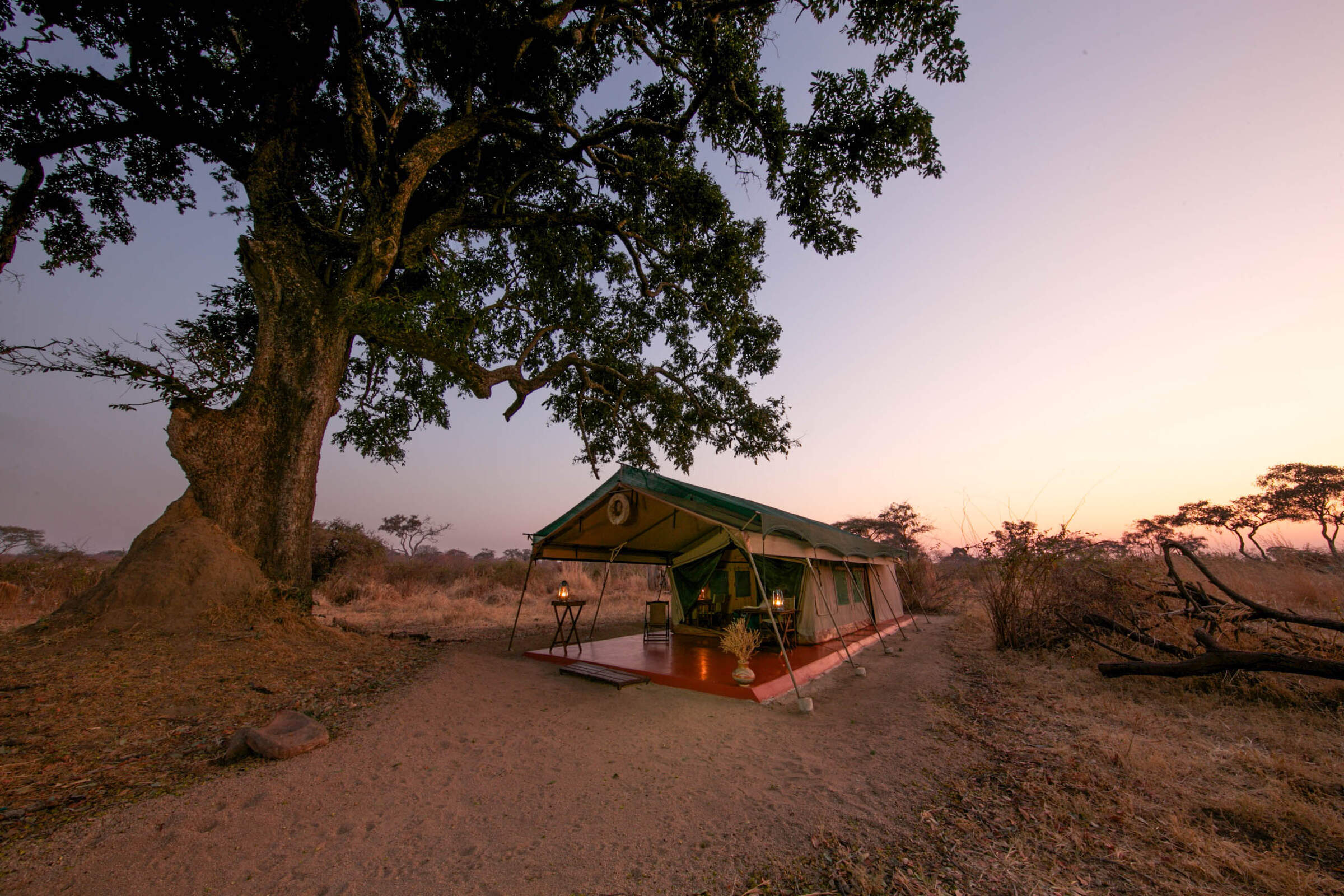
Mdonya Old River Camp
"Mdonya Old River review"
7 nights
Arrived
25 Nov 2007
Good
Experience Report
Overall Rating:
Good
Rooms
Excellent
Food
Average
Facilities
Average
Service
Excellent
Activities
Good
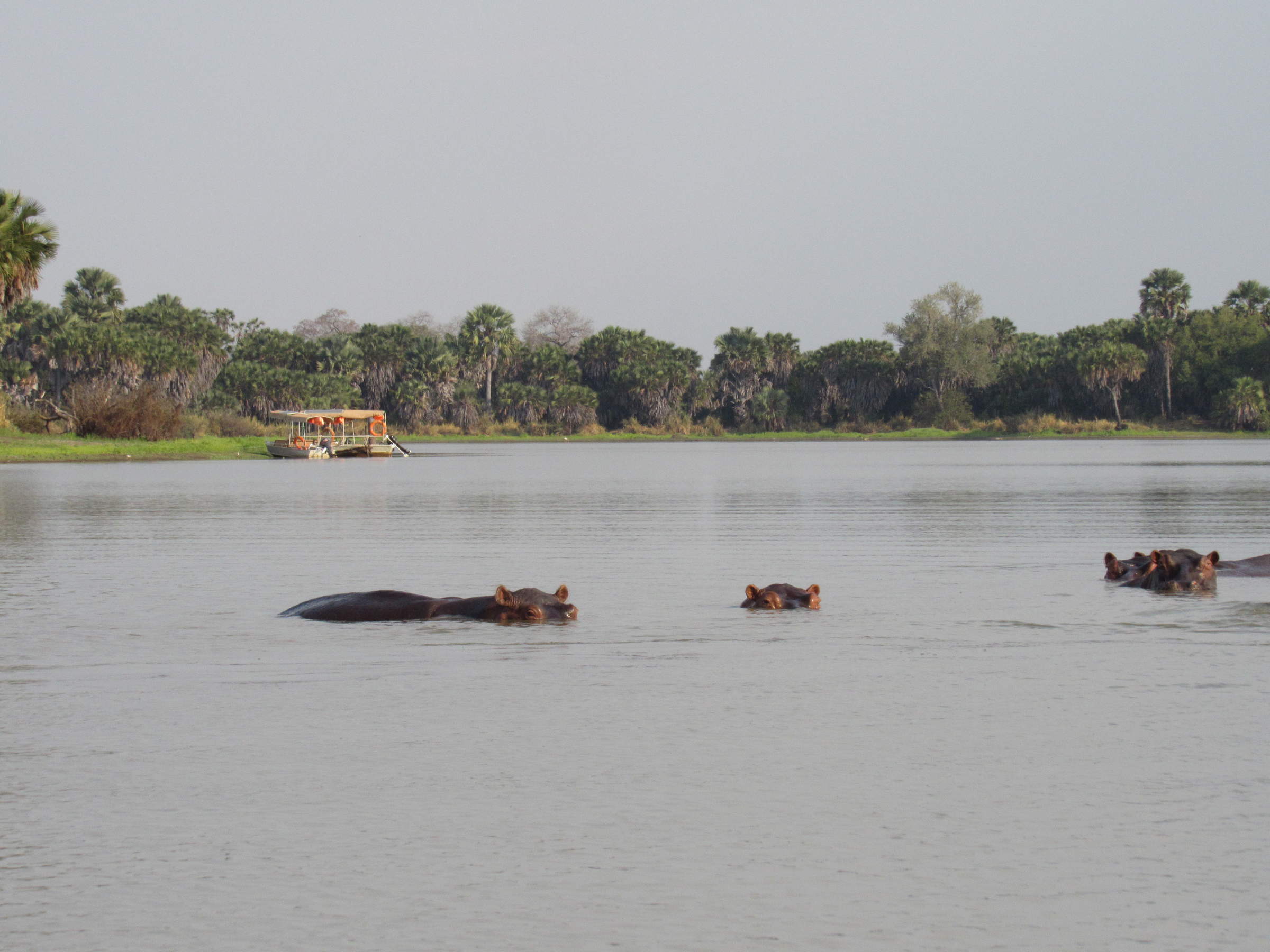
Lake Manze Adventure Camp
"Lake Manze Tented Camp review"
7 nights
Arrived
2 Dec 2007
"This is charming spot and the Selous has an advantage over Ruaha - you can take boat trips on the lakes and the Rufiji. Also, walks can be started straight from the camp - no need to drive to park HQ (as at Ruaha) to pick up a ranger.
Tents very similar to Mdonya, but food rather better both in quality and variety.
Late afternoon in a boat on Lake Manze is Africa at its most beautiful. The sky is full of wonderful cloud formations, reflected in the stillness of the water, animals are scattered along the shore, and there's an osprey overhead. Sheer magic."
Tents very similar to Mdonya, but food rather better both in quality and variety.
Late afternoon in a boat on Lake Manze is Africa at its most beautiful. The sky is full of wonderful cloud formations, reflected in the stillness of the water, animals are scattered along the shore, and there's an osprey overhead. Sheer magic."
Excellent
Experience Report
Overall Rating:
Excellent
Location
Excellent
Service
Excellent
Activities
Excellent
Rooms
Excellent
Food
Good
Facilities
Excellent
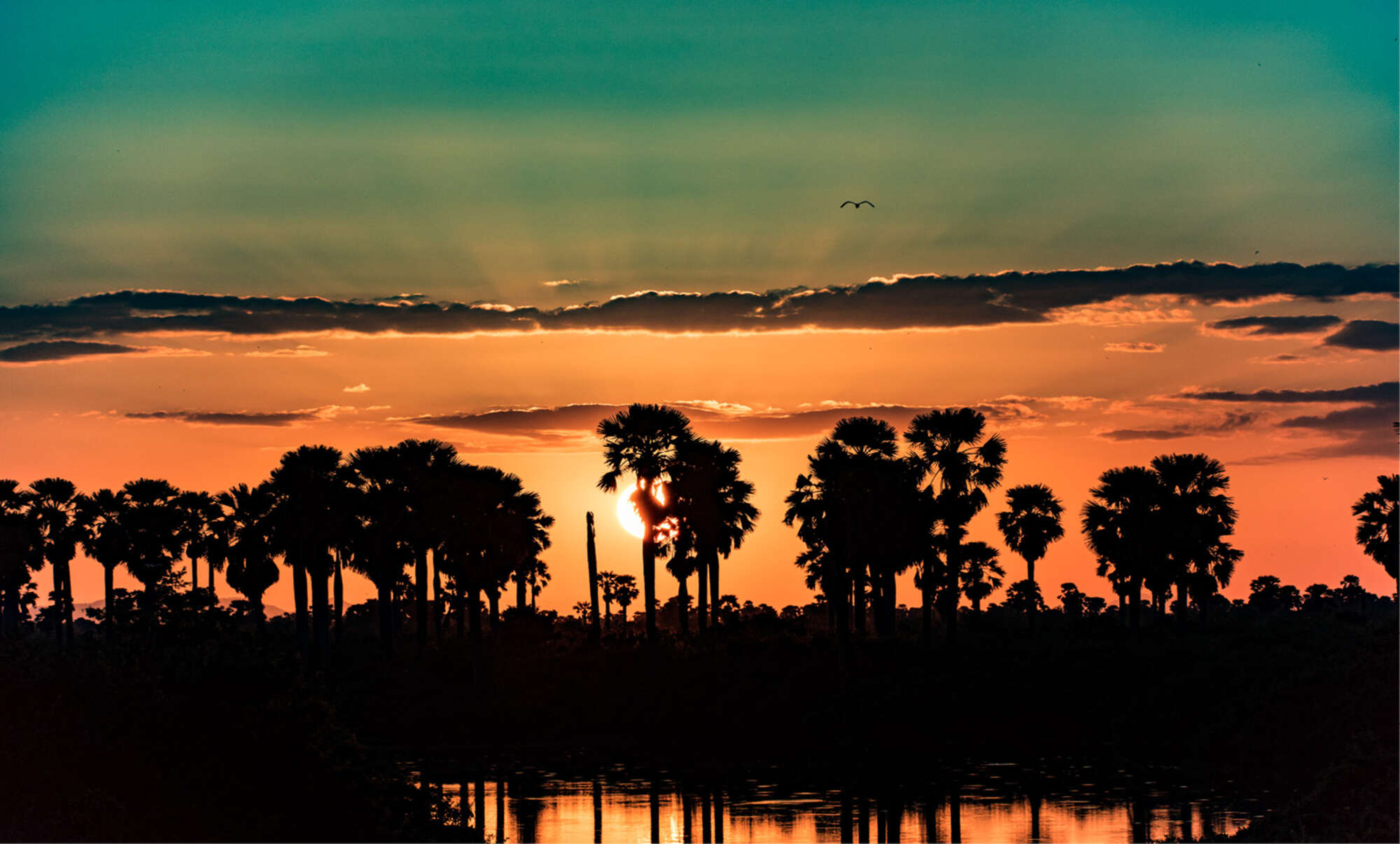
Impala Camp
"Selous Impala Camp review"
7 nights
Arrived
9 Dec 2007
"This is top end luxury! I don't know how the prices compare with Mdonya and Manze, but this is in a different category as far as food, service and general amenities are concerned. Guiding was very good (although see my general comments at the end). If you want to be pampered, this is the place.
The only quibble I have with your brochure description is that the tent affords “stunning views over the river and hill beyond.” Not so, in my experience. I did have a view of the river, but it was partly obstructed by foliage. I was happy with the location, it's just the brochure description that is wrong."
The only quibble I have with your brochure description is that the tent affords “stunning views over the river and hill beyond.” Not so, in my experience. I did have a view of the river, but it was partly obstructed by foliage. I was happy with the location, it's just the brochure description that is wrong."
Excellent
Experience Report
Overall Rating:
Excellent
Location
Excellent
Service
Excellent
Activities
Excellent
Rooms
Excellent
Food
Excellent
Facilities
Excellent
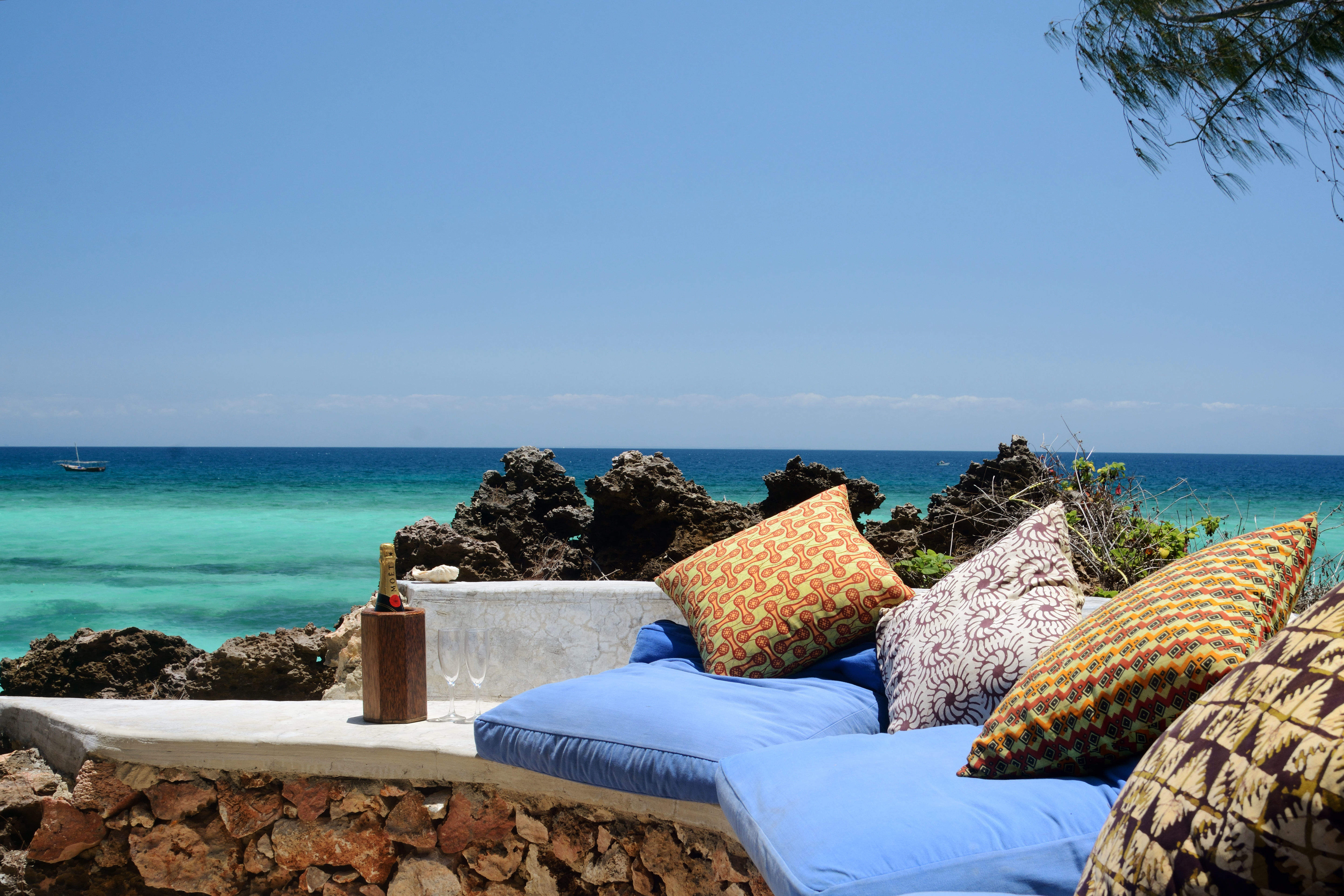
Unguja Lodge
"Unguja Lodge review"
5 nights
Arrived
16 Dec 2007
"Elies and Ralph could not be more welcoming or obliging. The whole place has a delightful feel. Although there are well-established grounds or gardens, it is not possible to walk in them owing to the rocky nature of the terrain.
The rooms are amazing - far more spacious and luxurious than the write up in your brochure, which did not prepare us for this magnificence. In addition to the bedroom, there is a delightful sitting area looking out to sea, and a separate "lounge". The toilet is in a room separate from the shower, so you have a choice of 3 wash basins: one in the toilet, one in the shower, and one in the bedroom! The bedroom is spacious, and there is a second "bedroom" up a flight of stairs, on top of the main bedroom. Your brochure write-up does not do the rooms justice.
However, although the rooms were better than expected, the beach was the opposite. Your brochure says: The beach at Unguja is beautiful white sand, but it's not the fine, powdery-white sand of the east coast – it's slightly coarser and has fragments of crushed shells in it. Unguja's beach is far more secluded than most on the east coast, and there are very few people around. Well, that is correct, but what is not said is that to reach the beach you have to walk either along 50 - 100 metres of cliff path, or over a lot of stone/coral. When you reach the beach, it is rather short (less than 100 yards would be my guess). Beyond a small headland at the far end of this short beach, there is a further piece of beach, but this is where the village of Kizimkazi is situated so it is not at all "secluded". All of this beach can be accessed only at low tide. However, in places there is indeed plenty of "fine, powdery-white sand".
Another problem with the beach at Unguja is that in a space of only 20-30 yards I picked up over a dozen pieces of broken glass, which were covered by the sea at high tide. Swimmers beware.
Shells: the hotel is giving mixed messages. In the welcome literature, you are asked not to take away the beach shells, etc. Great stuff! But when you look at the room, you find a display case showing off a variety of different shells, other shells scattered loose in a wicker tray, and the welcome note has a shelll stuck on the front. The hotel's paths are surfaced with a mixture of small stones and crushed shells (which appear to have been taken from the beach). The hotel's excellent conservation message is diluted. It would be more forceful if they practised what they preached! How many guests tear off the shell attached to their welcome message and return it to is natural place?
Zanzibar: The tours of Stone Town, the spice gardens and Johozi forest were all very good. Zala, however, was a mess. In an effort to please the visitors, individual animals and snakes are removed from their pens and handed over to the visitor for inspection and photography. There was a particularly distressing scrum round a poor chameleon with people trying to grab hold of it and pull it in different directions. The chameleon was clearly stressed. Guides could perhaps be "retrained".
We did not take a dolphin watching tour. I had previously met some people who had and they told me a distressing story of how the boat drivers chase and harrass the dolphins in order to get close to them and steer them in a desire direction."
The rooms are amazing - far more spacious and luxurious than the write up in your brochure, which did not prepare us for this magnificence. In addition to the bedroom, there is a delightful sitting area looking out to sea, and a separate "lounge". The toilet is in a room separate from the shower, so you have a choice of 3 wash basins: one in the toilet, one in the shower, and one in the bedroom! The bedroom is spacious, and there is a second "bedroom" up a flight of stairs, on top of the main bedroom. Your brochure write-up does not do the rooms justice.
However, although the rooms were better than expected, the beach was the opposite. Your brochure says: The beach at Unguja is beautiful white sand, but it's not the fine, powdery-white sand of the east coast – it's slightly coarser and has fragments of crushed shells in it. Unguja's beach is far more secluded than most on the east coast, and there are very few people around. Well, that is correct, but what is not said is that to reach the beach you have to walk either along 50 - 100 metres of cliff path, or over a lot of stone/coral. When you reach the beach, it is rather short (less than 100 yards would be my guess). Beyond a small headland at the far end of this short beach, there is a further piece of beach, but this is where the village of Kizimkazi is situated so it is not at all "secluded". All of this beach can be accessed only at low tide. However, in places there is indeed plenty of "fine, powdery-white sand".
Another problem with the beach at Unguja is that in a space of only 20-30 yards I picked up over a dozen pieces of broken glass, which were covered by the sea at high tide. Swimmers beware.
Shells: the hotel is giving mixed messages. In the welcome literature, you are asked not to take away the beach shells, etc. Great stuff! But when you look at the room, you find a display case showing off a variety of different shells, other shells scattered loose in a wicker tray, and the welcome note has a shelll stuck on the front. The hotel's paths are surfaced with a mixture of small stones and crushed shells (which appear to have been taken from the beach). The hotel's excellent conservation message is diluted. It would be more forceful if they practised what they preached! How many guests tear off the shell attached to their welcome message and return it to is natural place?
Zanzibar: The tours of Stone Town, the spice gardens and Johozi forest were all very good. Zala, however, was a mess. In an effort to please the visitors, individual animals and snakes are removed from their pens and handed over to the visitor for inspection and photography. There was a particularly distressing scrum round a poor chameleon with people trying to grab hold of it and pull it in different directions. The chameleon was clearly stressed. Guides could perhaps be "retrained".
We did not take a dolphin watching tour. I had previously met some people who had and they told me a distressing story of how the boat drivers chase and harrass the dolphins in order to get close to them and steer them in a desire direction."
Good
Experience Report
Overall Rating:
Good
Location
Excellent
Service
Excellent
Rooms
Excellent
Food
Good

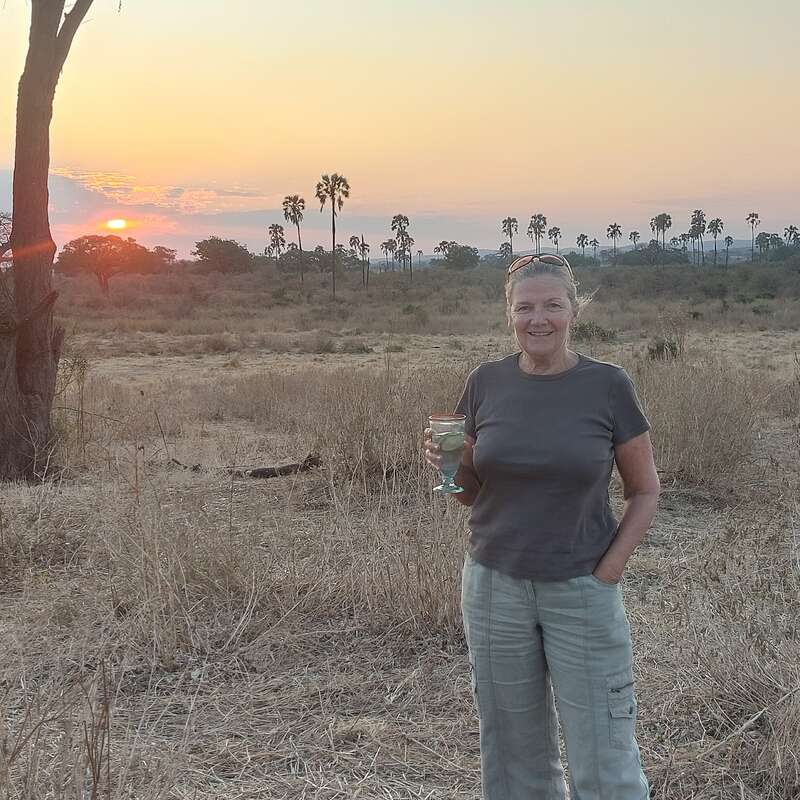

I have put "No comment" for location, but I do have comments. Unfortunately, this camp was in the wrong place for the time of my visit. Due possibly to (a) drought and (b) a fire started by poachers, most of the animals had shifted to the area of the Ruaha and Mwagusi rivers. This meant that game drives and walks really started on arrival in these areas. The magical couple of hours in the early morning and late evening were generally taken up driving to/from the Ruaha river area (through a tsetse belt where I provided a banquet for the flies). Game viewing took place mostly in the heat of the mid-day sun.
The food was unimaginative. For example, on a full-day drive packed breakfast consisted to 2 hard-boiled eggs, 2 hot dog sausages, one bread roll and an apple. Lunch was the same, except a deep-fried bun replaced the roll. There was little or no provision of veggie food. This is not a complaint. Merely at statement of fact that at this camp veg. is difficult to obtain - understandable when one bears in mind the circumstances under which the camp is supplied.
I was in this park about 11 years ago and I noticed a marked decrease in the number of some animals. My first visit was when the Ruaha river had just started drying up at this time of the year. I was taken to a pool on the Ruaha where crocodiles were packed in like sardines. Also large concentrations of hippo. This year at the same place I could count only half a dozen of each animal. Nick, the manager at Mdonya, said this is entirely due to the cumulative effects of these annual dryings up of the Ruaha river. The animals just cannot survive in the dry season. He said there has been a similar, huge reduction in the numbers of buffalo. Further downstream the Ruaha provides hydroelectric power and Dar has suffered power cuts because the river dries up. There is some hope that the government may take action to restore the flow of the river in order to safeguard Dar's electricity. The side effect may be to benefit the animals in Ruaha. The problem is that the headwaters are used to irrigate rice farms and water large numbers of cattle. It will not be easy to persuade the people concerned to reduce their water consumption.
In the interests of accuracy, would it be a good idea to state that the Ruaha River does dry up completely at certain times of the year?"